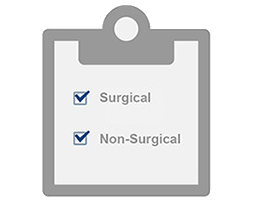Urinary incontinence isn’t always preventable, nor is it easy to talk about. Regaining bladder control can start with a simple question or supportive conversation.
Here are some tips in talking about incontinence
For the Sufferer
Talking about your urinary incontinence can be difficult. Discussing your feelings about your current situation may be the first step in exploring options to regain your confidence.
Questions to begin a conversation with a partner or caregiver
- Can I share with you what I am dealing with and how I am feeling?
- I haven’t been feeling like myself because I am leaking, and I worry that I may smell or be wet and not know it.
- My leaking is bothering me, and I want to go to the GP or a urologist to discuss my options. Will you come with me?
- Can we talk about my urinary incontinence?
- There is something on my mind and I find it difficult to talk about.
- Hey, can we talk about my urinary incontinence?
- I’m leaking, I’m afraid it might be urinary incontinence.
- I’m going to do something about my bladder leakage, and I want your help/support.
Some questions to ask a urologist who treats urinary incontinence
- Why am I incontinent?
- Will it go away?
- Will my incontinence get worse?
- Could pelvic floor exercises help? How do I do them?
- Could the medicines I take be making my incontinence worse?
- What are my options to treat my urinary incontinence?
- I had prostate cancer surgery; is there a surgery to fix my incontinence too?
- I’ve had bladder leakage for years. Is there anything I can do about it?
- I’d like to ask you about treatments to improve my bladder leakage.
- My bladder control isn’t good. What can I do to fix this?
- What are the surgical and non-surgical treatment options for urinary incontinence?
For the Partner
Talking to your partner or loved one about their incontinence can be a tough subject to discuss. You may play the most important role in his recovery. To show your support, get informed, choose your moment and let him know he is not alone. Here are some ways to start the conversation.
Questions to consider about your loved one
- How often does he leak urine?
- Does he leak urine when he coughs, sneezes or laughs?
- When arriving at new places, does he immediately look for where the bathroom is located?
- What is his daily fluid intake?
- Would you like to help him restore his normalcy and the quality of both of your lives?
Talking to your loved one who has urinary incontinence
- You seem hesitant about leaving home. Is everything okay? Do you want to talk about it?
- Lately, you’ve been visiting the bathroom more than usual. Can we talk to a urologist about that?
- I learned there are solutions for bladder leakage beyond pads! Can we go to the GP or urologist and ask about all our treatment options?
- I know you don’t want anyone to know about your bladder control issues, but I think it’s time to learn about other treatments that can help.
- I know you are still leaking so let’s go see a urologist specializing in male incontinence. I think learning more about all treatment options might help.
- I know your incontinence may be hard to talk about, but we need to address it. There are treatment options available and I want to help.
- There are a lot of couples that face incontinence. I am here for you. We could speak to our GP or a urologist who specialises in urinary incontinence. What do you want to do?
Talking to a specialist about your loved one’s urinary incontinence
- Will his stress incontinence get worse?
- Could pelvic floor exercises help? How do we do them?
- Could the medicine he takes be aggravating his incontinence?
- What tests might he need to determine the cause of his condition?
- Will he need surgery?
Take the Quiz
Take our quiz to identify if you are experiencing urinary incontinence symptoms and help kick-start the conversation with your doctor.
Questions to Ask
Helpful hints on how to start the conversation with your GP or urologist, and other useful resources.
Results from case studies are not necessarily predictive of results in other cases. Results in other cases may vary. All images are the property of Boston Scientific. All trademarks are the property of their respective owners.
Disclaimer: Individual symptoms, situations, circumstances and results may vary. This information is not intended to be used for medical diagnosis or treatment or as a substitute for professional medical advice. Please consult your doctor or qualified healthcare provider regarding your condition and appropriate medical treatment.
These Videos are meant for informational purposes only and may not be indicative of clinical outcome. The opinions, procedures and patient care policies expressed or depicted in the videos are those of the physician or practice nurse and do not necessarily reflect the opinions, policies or recommendations of Boston Scientific Corporation or any of its employees.
This site is intended for Australian residents only. Please review the Boston Scientific Privacy Policy, for practices on the collection, storage, use and disclosure of your personal information.
CAUTION : Indications, contraindications, warnings and instructions for use can be found in the product labelling supplied with each device.





